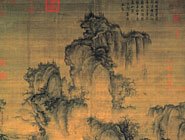| Download Trend of Globaliza... |
全球化的趨勢(開場白:)
全球化在過去幾年中成為最熱門的字眼,也是最具爭議性地話題。幾乎世界上所有的國家,包括台灣這個政治實體在內,都成了WTO的會員國。
這是世界潮流的趨勢,儘管反對的聲浪很大,但是已經沒有辦法走回頭路了。
首先讓我來談一談經濟全球化的歷史背景。
全球化的涵義,就是要把全球經濟逐漸結為一體,讓原本各自為政的地區經濟更高度地互動、互通、互相依賴。
這種觀念來自十八世紀著名的經濟學家亞當史密斯。他認為一個國家真正的財富不在於金銀,而在於生產力。從這個角度來看,如果各國分工合作,各自做自己最拿手的生產,然後透過國際貿易搬有運無,大家可以得到需要的東西,大家的生產力都會提高,因此全部的人都將受益。這是市場經濟的原則。
他提出了市場優勢的觀念:每個國家的條件各不相同,經濟上的強項也各不相同。如果這兩個國家分工合作,從事自己最具有優勢的生產,然後互相交換產品,兩國的總產量將高於為分工的產量。這種理論相當有遠見。
以上所說的,也可以看成是全球化的好處。
其次,我要談談全球化受到爭議的原因。
這個理論要實現,各國都必須拋棄傳統的保護本國產業的思維,接受自由貿易的概念。在現實上有一些障礙。
比如說,許多因素讓每個國家都不能放棄某些產業。例如,許多國家為了自身的安全,成本再高也必須發展自己的鋼鐵工業。
亞洲各國基本上都是以農立國,農人可能要被迫改行,甚至失業。開放工業產品進口,一般老百姓一方面可以享受更便宜更高級的產品,但是,勢必使原本脆弱的工業面臨裁員和倒閉的情況。每個國家都必須在這兩個厲害之間小心的做出選擇。不過,即使短期內採取某些保護措施,長期而言,各國都是逐漸在開放市場。
依我個人的看法,我認為如果把眼光拉大,在面臨失業的同時,開發中國家的經濟也在快速發展,隨之而來的購買力增加,將使他們開始需求工業國家的產品和服務;工業國家的企業又將雇佣更多的勞工。一個經濟循環於是完成。
你一定知道,美國沒有最多的人力,沒有最廣的土地,也沒有最豐富的資源,但是美國能成為首屈一指的經濟大國,正是因為透過不斷的分工取得了最強大的生產力。
今天由於網路的發展,促使全球化進行的更快速。新的分工正在出現,就是製造業的工作紛紛移到中美洲和亞洲等人工更便宜的地方,工業國家成為服務業的中心,文化產業和高科技的輸出國。
總的來說,全球化是無法走回頭路的。我們歡迎全球化的到來。
生字表
實體 shítǐ entity (like economic or political entity)
潮流 cháoliú tide, tidal current; tide, trend (of history, etc.)
趨勢 qūshì trend, tendency
聲浪 shēnglàng clamour, din (of people calling or shouting out); sound wave, acoustic wave, sonic wave
涵義 hányì meaning, implication
一體 yītǐ organic whole, entity; all those concerned
各自為政 gè zì wéi zhèng "each does things in his own way"; without coordination with others
互動 hùdòng interact, interaction, interactive
互通 hùtōng exchange (like information)
互相依存 hùxiāng yīcún be interdependent, depend on each other
財富 cáifù wealth, riches, treasures
在於 zàiyú lie in, rest with; depend on; be up to (somebody)
金銀 jīnyín gold and silver; money
分工合作 fēngōnghézuò division of labour and cooperation
拿手 náshǒu adept, expert; assured, certain; an excuse
受益 shòuyì receive benefits
優勢 yōushì (have) the upper hand, superiority
強項 qiángxiàng game or event in which one is strong; forte, strong area
遠見 yuǎnjiàn perspicacity, farsightedness
拋棄 pāoqì abandon, forsake, discard
思維 sīwéi thought, thinking; think over
概念 gàiniàn concept, notion, idea
現實 xiànshí reality; realistic, practical; real, actual
障礙 zhàng'ài obstruct; obstacle, barrier
因素 yīnsù factor, element
放棄 fàngqì abandon, give up (an opportunity, idea, etc.)
鋼鐵工業 gāngtiěgōngyè the iron and steel industry
以農立國 yǐnónglìguó take agriculture as foundation of the economy
被迫 bèipò be compelled, be forced
改行 gǎiháng change occupations or professions
勢必 shìbì bound to, certainly will
脆弱 cuìruò frail, fragile
裁員 cáiyuán reduce staff
倒閉 dǎobì go out of business, go bankrupt
厲害 lìhai fierce, terrible, formidable
選擇 xuǎnzé choose, select
眼光 yǎnguāng sight, vision; vision, foresight
拉大 lādà lengthen
隨之而來 suí zhī ér lái all coming subsequently, coming with it
購買力 gòumǎilì purchasing power
僱用 gùyòng hire, employ
循環 xúnhuán circulate, occur in cycles; cycle, circulation
豐富 fēngfù rich, abundant; enrich
資源 zīyuán resources, natural resources; Ziyuan (county, Guangxi)
首屈一指 shǒuqū yīzhǐ come first, the best
分工 fēngōng divide the work; division of labor
製造業 zhìzàoyè the manufacturing industry
紛紛 fēnfēn numerous and disorderly (of opinions, things falling, etc.); (coming) one after another (of people, things)





沒有留言:
張貼留言